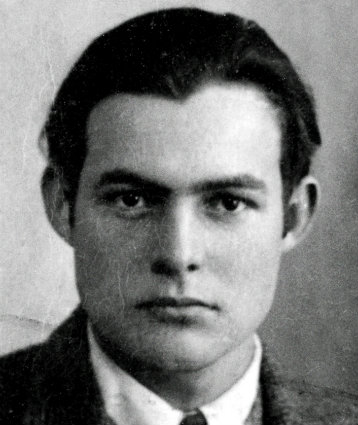Introduction
In 1918, eighteen-year-old Ernest Hemingway (1899–1961) volunteered to serve as an ambulance driver in World War I. In July of that year, stationed near Milan at the Italian Front, he was wounded by German mortar fire and was awarded the Italian Silver Medal of Bravery for carrying an Italian soldier to safety despite his own injuries. For the rest of his life, Hemingway would write about his experience in and recuperating from the Great War in such works as The Nick Adams Stories (1972) and A Farewell to Arms (1929). In the late 1930s, he reported firsthand on the Spanish Civil War, and in 1944 he covered the D-Day landing and the Allied liberation of Paris. He won the 1952 Pulitzer Prize for The Old Man and the Sea and two years later was awarded the Nobel Prize in Literature.
Unlike the veteran in Frost’s “Not to Keep,” the hero of Ernest Hemingway’s story, first collected in In Our Time (1925), is home to stay, but not happily so. Collect and consider Krebs’s many reactions to being back at home. Why does he have so much trouble coming home? Do you sympathize with him, or do you find him lacking? What, if anything, might make it possible for him—or for any returning soldier—happily to come home and to rejoin civilian life? Can he ever recover his prewar attitudes toward life or the people he knows and meets? What or where is the “soldier’s home”?



Post a Comment